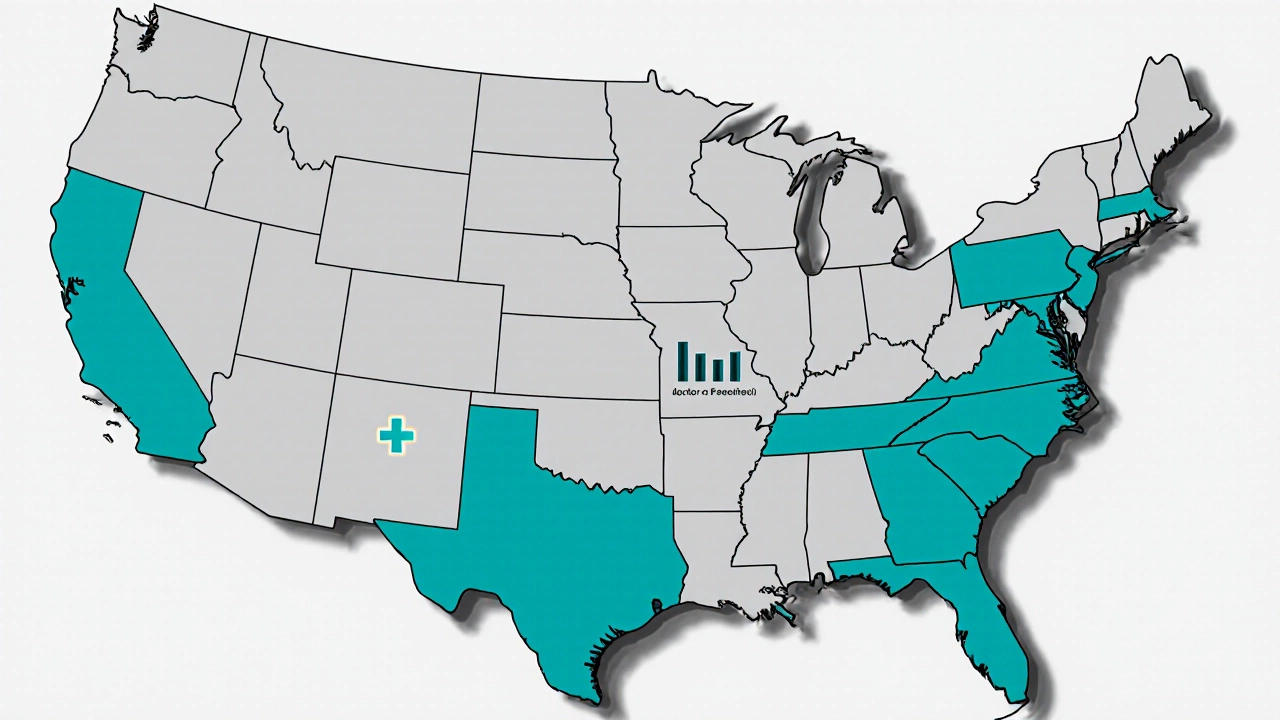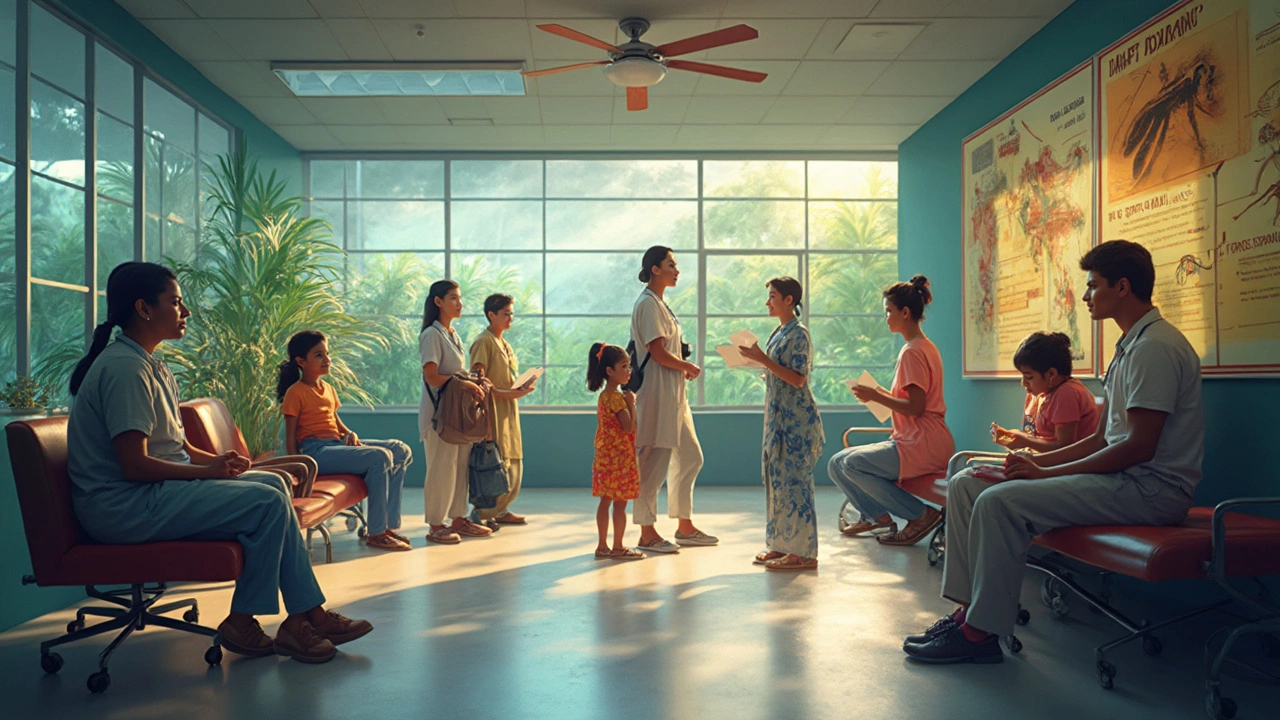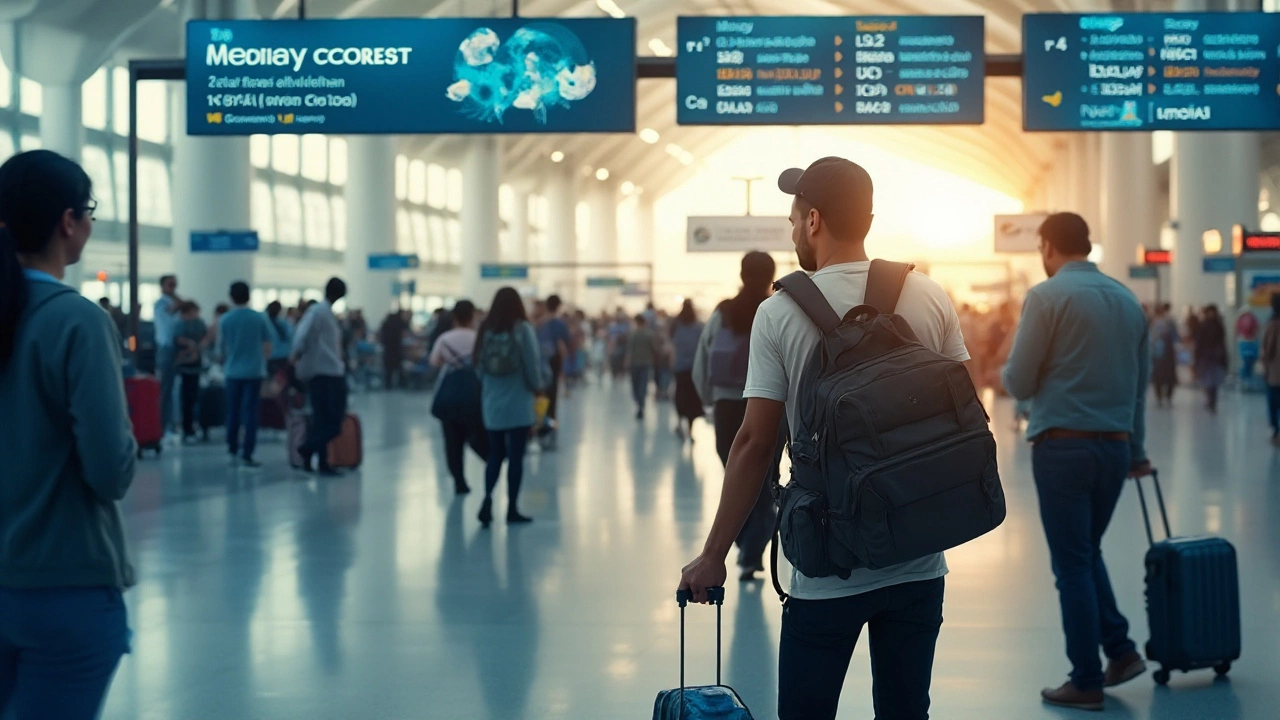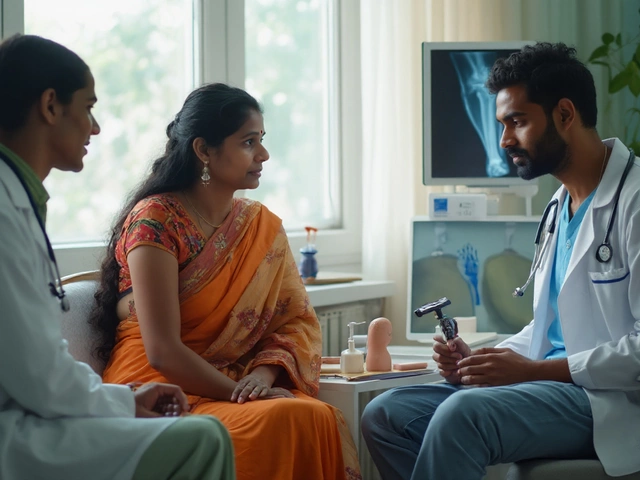Medical Tourism Guide: What You Need to Know Before You Go
Thinking about getting treatment in another country? You’re not alone. People travel for cheaper surgeries, faster appointments, or procedures not available at home. But a health trip isn’t a vacation – it needs solid planning. Below you’ll find the practical steps that turn a risky idea into a smart, safe experience.
Why Choose Medical Tourism?
First, ask yourself why you’re even considering it. In India, world‑class hospitals offer cardiac surgery, joint replacement, and cosmetic procedures at a fraction of US or European prices. Many clinics are accredited by international bodies, so quality matches what you’d expect at home. Another big plus is shorter waiting times; you can often schedule an operation within weeks instead of months.
But the cost savings only matter if you avoid hidden expenses. Travel, accommodation, and follow‑up care can add up fast. That’s why you need a clear budget before you book anything.
How to Plan a Safe Medical Trip
Start with research. Look for hospitals that have JCI, NABH, or ISO accreditation. Read patient reviews on forums and check if doctors publish their credentials online. A quick phone call to the international patient office can reveal how they handle visa support, translation services, and post‑op follow‑up.
Next, get a detailed quote. Ask for a breakdown that includes surgeon fees, anesthesia, hospital stay, and any medication you’ll need after discharge. Compare that number with what you’d pay locally, but remember to factor in travel insurance that covers medical complications abroad.
Visa requirements are usually straightforward for health travel, but you’ll often need proof of a confirmed appointment. Keep a copy of your medical records, lab reports, and imaging studies handy; most hospitals want to see them before the procedure.
When you arrive, pick a hotel close to the clinic. A short commute reduces stress and makes it easier to attend pre‑op tests. Most reputable hospitals have partnerships with nearby hotels that offer discounted rates for patients.
After the procedure, follow the doctor’s post‑op instructions to the letter. Schedule a tele‑consultation with your home doctor before you leave the country – they can monitor your recovery and catch any complications early.
Finally, keep all receipts and medical documents. They’ll be useful if you need to claim reimbursement from your insurance or if you decide to pursue legal action later.
Medical tourism can save you money and give you access to treatments you might not find at home. By doing your homework, budgeting carefully, and staying in touch with both foreign and local doctors, you turn a potentially risky trip into a well‑managed health journey.

Which US State Has the Best Doctors for Medical Tourism?
Explore which US state offers the best doctors for medical tourism, based on doctor‑to‑patient ratios, hospital accreditation, specialty strengths and cost, plus a practical checklist.

Biggest Health Problem in Costa Rica: What You Need to Know Before Traveling
Planning medical tourism in Costa Rica? Many visitors don't realize that dengue fever is the biggest health problem you might face while there. This article breaks down why dengue is so common, how it can affect you, and what you should do to stay safe. You'll also get real tips on healthcare options, what the hospitals are like, and smart ways to avoid getting sick. Whether you're booking dental work or surgery, this guide helps you dodge surprises and take control of your health while traveling.

What Country Has Free Healthcare? Your Quick Guide for Medical Travelers
If you’re wondering which countries offer free healthcare, this article breaks down where you can get medical treatment without huge bills. Get a snapshot of how free healthcare works in different places and find out what’s covered for both locals and travelers. Some countries roll out the red carpet for international patients, while others keep the best deals for citizens. Discover where you can really save, plus smart tips for using foreign health systems if you’re traveling. Make informed choices so you’re not caught off guard by surprise medical expenses.

Which Country Has the Unhealthiest Diet?
Figuring out which country eats the unhealthiest is more than just pointing fingers at who eats the most fast food. It's a mix of factors like high sugar intake, dependency on processed foods, and cultural habits that favor unhealthy options. This information matters more so today as people are willing to travel for better medical care going beyond borders with medical tourism solutions. Discover some surprising countries that earn this dubious title and what you can do if you're planning to travel for health-related reasons.

Can I Use My US Health Insurance Abroad?
Traveling abroad and wondering if your US health insurance has you covered? Many Americans hit the road each year for medical tourism, but insurance coverage can vary widely. This article dives into the details of using US health insurance internationally, addressing what policies generally cover, how to prepare before traveling, and tips for protecting yourself against unexpected medical bills abroad.

Where Do Happy Doctors Call Home?
Ever wondered where doctors find the most job satisfaction and happiness? This article explores the intriguing world of happy doctors and where they choose to practice. It delves into factors influencing their well-being, such as work-life balance, healthcare systems, and local culture. Discover which countries prioritize doctor happiness and why these locations are attractive to medical professionals. Plus, get tips if you're considering moving abroad for a medical career.

Discover the #1 Hospital in the World for Medical Tourism
Finding the best hospital for medical tourism can significantly impact your treatment outcome and overall experience. This article delves into the top-ranking hospitals worldwide, highlighting their specialties, the reasons they stand out, and practical insights for prospective patients. Whether you're considering surgery or a wellness retreat abroad, knowing the best global hospitals can guide your decision. Understand the factors that contribute to a hospital's world-class status and get tips on planning your medical journey.

Why Medical Tourism Sparks Heated Debates
Medical tourism is a booming industry, with people traveling globally for healthcare solutions that may be inaccessible or more expensive where they live. While it offers benefits like cost-saving and access to advanced treatments, it's fraught with controversies such as quality control, ethical concerns, and insurance issues. For patients, the decision to seek treatment abroad can sometimes be more complex than expected. This article delves into the reasons why medical tourism provokes such lively discussion.

Discovering the World's Top Hospital: A Medical Tourism Adventure
Embark on a journey to uncover the best hospital in the world, delving into what sets it apart from others globally. In the realm of medical tourism, choosing the right healthcare destination is vital for personal care and well-being. Discover how top hospitals cater to international patients, offering state-of-the-art facilities, leading experts, and exceptional patient services. Learn about the factors influencing hospital rankings and why they matter in making informed healthcare decisions.

Financial Challenges in Different US States and Medical Tourism Considerations
Exploring the financial difficulties people face in different US states and how it intersects with medical tourism options. This article dives into the economic challenges of living in states with high costs and its impact on healthcare choices. It touches on the significance of medical tourism for those looking for affordable healthcare solutions. Discover how some US residents navigate the balance between high living costs and accessible medical care, often seeking solutions beyond state borders.

Medical Illness Rates Around the World: Insights for Travelers
Exploring which countries experience the highest frequency of illness can offer valuable insights for medical tourists. Understanding varying disease patterns across nations helps travelers make informed decisions. From prevalent illnesses to available healthcare, this article delves into the factors contributing to countries' health statistics. Additionally, it provides tips for those seeking medical treatment abroad.

Discovering the Healthiest Foods Around the Globe
Exploring the healthiest foods worldwide reveals a fascinating journey into diverse cuisines that prioritize nutrition and wellness. From the aromatic spices of India to the rich Mediterranean diet, each culture offers unique foods that not only tantalize the taste buds but also promise a slew of health benefits. This article delves into the connection between culture, diet, and health, providing insights into how these foods can promote a better lifestyle. Learn how these foods contribute to longevity and overall wellbeing, making them sought after in medical tourism.




